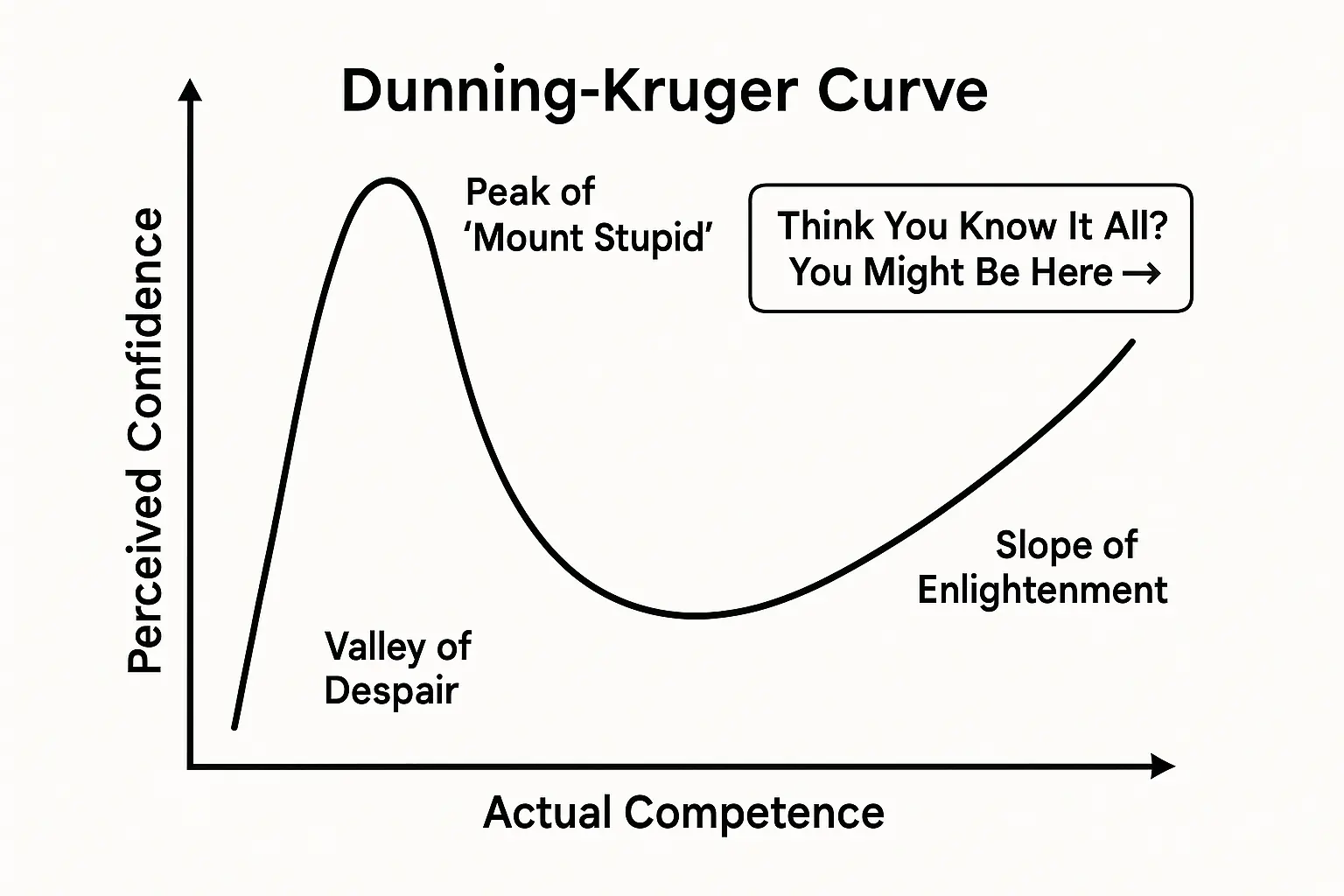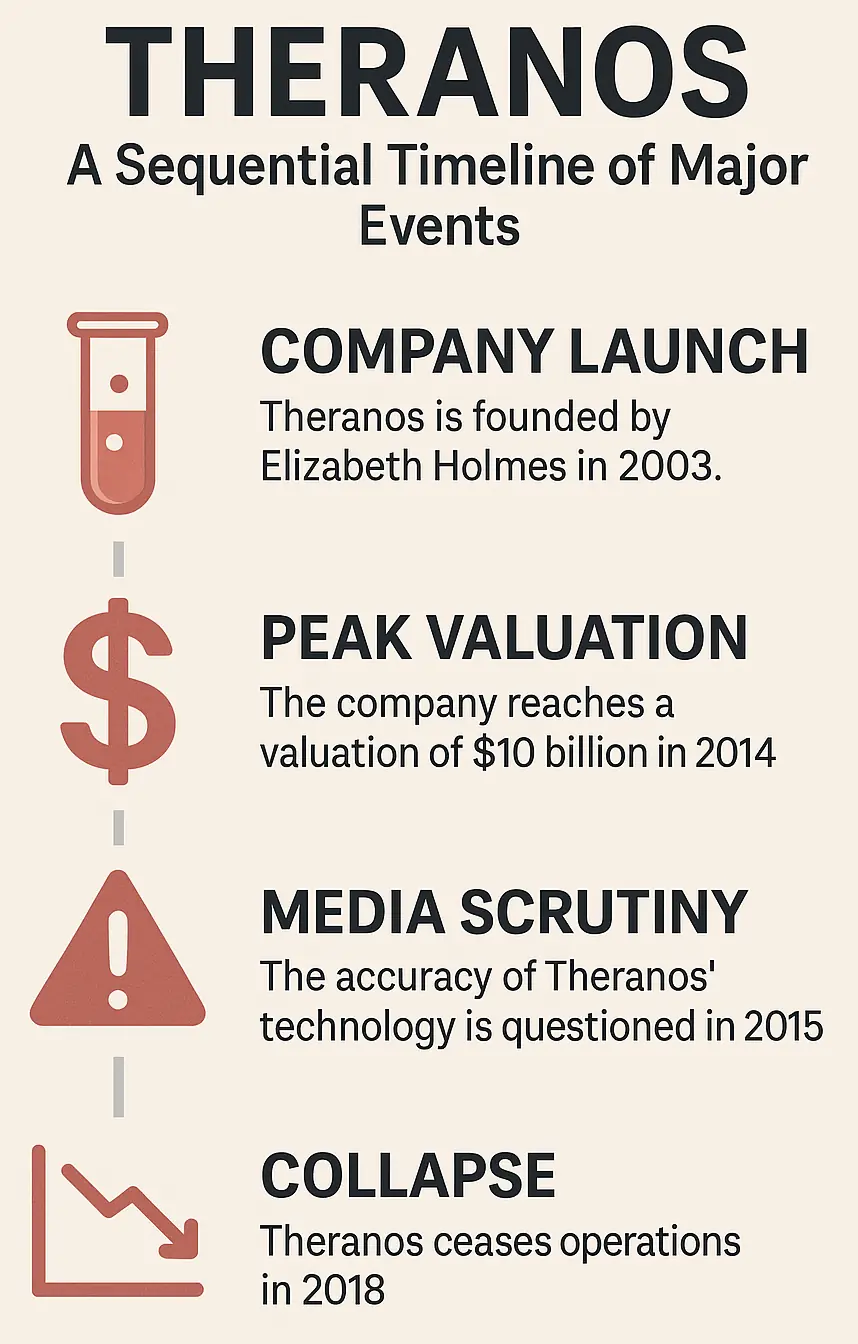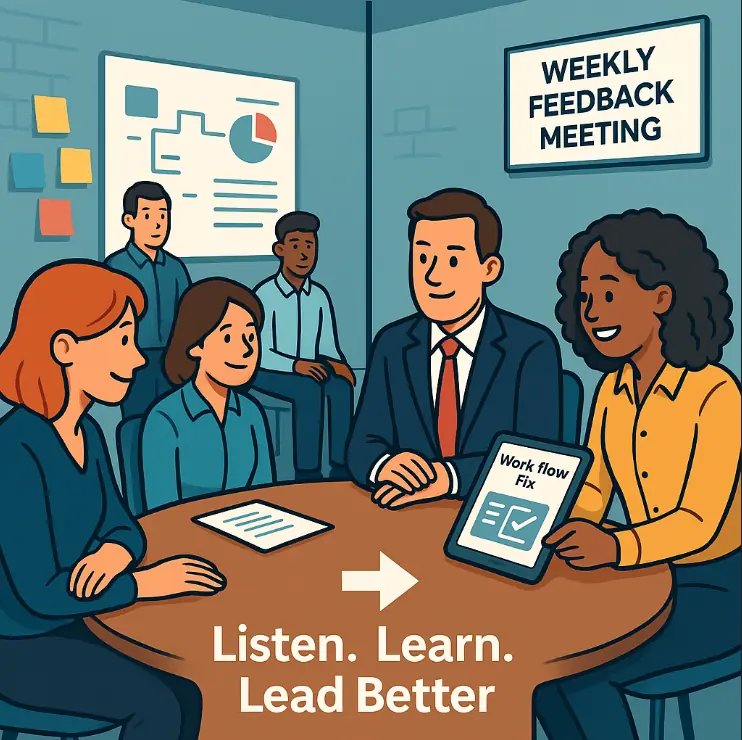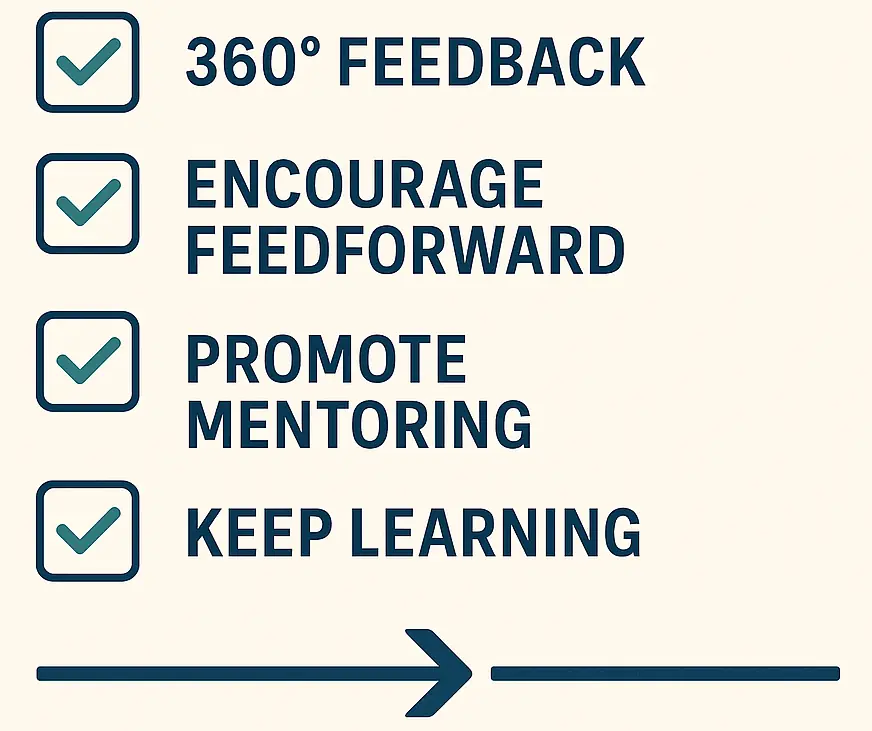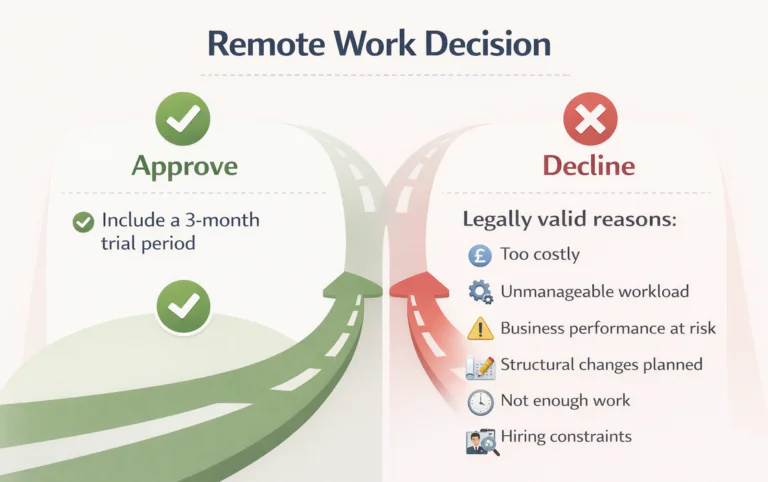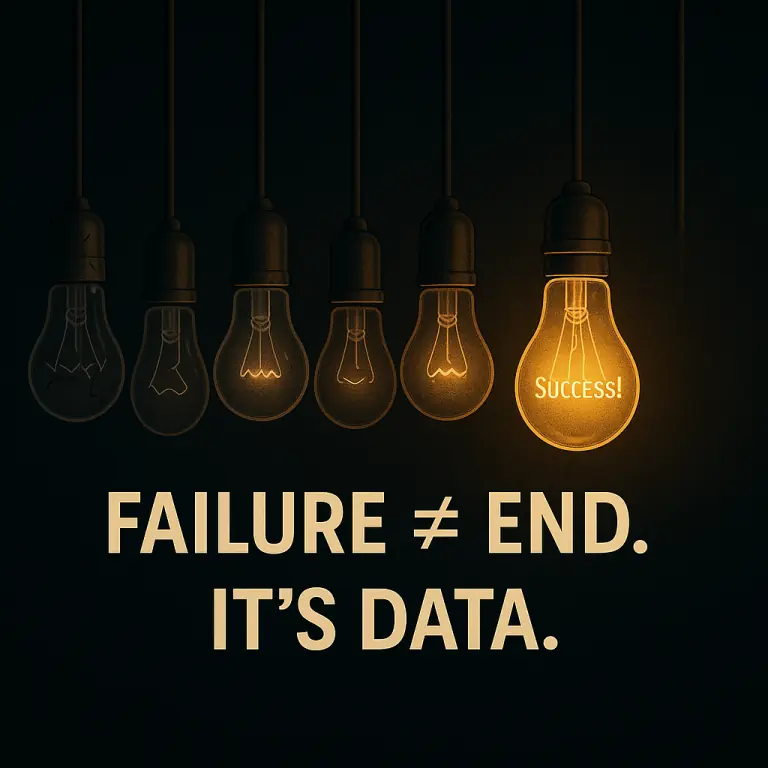
Defeating The Dunning-Kruger Effect
Contents
They say confidence is essential for success in business; or in any part of life.
However, there is such a thing as overconfidence.
The Dunning-Kruger effect is a reflection of overconfidence and the damage it can do in the workplace.
It can affect anyone. It doesn’t matter how old, intelligent, or well-off you are.
This cognitive issue can strike without warning, and you probably won’t even know it.
What Is The Dunning-Kruger Effect?
Have you got a friend who knows everything about a specific topic: but that topic changes week by week? They’re probably suffering from the Dunning-Kruger effect.
It’s especially likely if you try to correct them and they get extremely defensive.
The truth is, they think they are an expert and are completely unaware that they don’t know half the facts.
The effect was first described by Kruger and Dunning in 1999. It discussed a hypothetical cognitive bias where people with low ability overestimate their abilities.
In other words, people who perform tasks badly believe they are doing them well.
The theory states that someone with a low ability doesn’t have the ability to judge their own skills – hence they overestimate them.
It’s dangerous in any role. But, especially when leaders display the Dunning-Kruger effect.
Believing you know everything about a topic can lead to erroneous assumptions. Managers won’t listen to employees as they believe they know better.
This means project opportunities are missed, resources can be wasted, and, in some cases, the project fails.
Being oblivious to your actual skill level and the amount of knowledge you have means you have blind spots.
Put simply, you’ll think you know the right answer when you don’t actually have all the facts.
That won’t help you complete any project successfully.
Trainer Insight: In our line manager training, we often see managers underestimate the Dunning-Kruger effect.
It doesn’t always look like arrogance – sometimes it’s simply assuming you’ve “done it before” and therefore know best.
Recognising this bias is the first step toward more open, collaborative decision-making.
The Risks of Overconfidence In Leadership
While building confidence is important for some managers, overconfidence is a problem for others!
The biggest risk with the Dunning-Kruger effect is that you won’t listen to others.
You believe you know more than them, and are an expert in the field.
That means you’ll go with what you think is best, even if it isn’t the best or most practical choice.
For example, you’re instructed to launch a new product and believe you have the knowledge and experience to do so.
However, you don’t. While you oversee the production of a first-class product, you don’t know enough about marketing a new product to successfully launch it.
The consequence is few sales as people aren’t aware of your product, and a competitor will pinch the idea and do it better.
There are plenty of famous examples of this, such as Theranos.
The company Theranos was created by Elizabeth Holmes and offered a revolutionary way to test blood.
Long story short, the entire premise was based on a flawed understanding of medical research and lab procedures.
Holmes couldn’t see the issues and the company eventually folded without revolutionising blood testing.
The problem with overestimating your abilities is that you won’t listen to the opinions of others, even if they know more than you.
That means problems aren’t corrected, projects are either too expensive or don’t work, and both you and the business lose the opportunity to grow and learn.
Trainer Insight: Something we always hear from delegates is projects stalling because leaders dismiss input from experts.
Encouraging managers to listen prevents blind spots and builds a culture where expertise at all levels is valued.
Encouraging Humility In Leadership
The good news is that you can do something about the Dunning-Kruger effect.
All it takes is an acknowledgement that others may know as much, or more, about a topic than you do.
In short, you need to display humility in your leadership.
I know it’s hard! But it’s a unique way to motivate your team.
Personally, I was in charge of re-inventing the invoicing process for engineering jobs.
Creating a new invoicing system was easy – but it didn’t suggest we would save much time.
It was only when one of my staff took the time to create an example run, which included digitalising the engineer’s time and parts allocation, that I realised a more efficient invoicing system started much earlier in the process than I had been looking at.
If it hadn’t been for their dedication and work, I’m sure the project would have failed, potentially costing the company a lot of money.
To make it a success, I had to swallow my pride and humbly accept that I didn’t know everything.
What really stands out for me; is that my admission to my team that I didn’t have all the answers, prompted a wave of suggestions.
Most of them made the project better.
Perhaps even more importantly, my team were suddenly much happier to admit they didn’t know something.
It led to weekly honest team meetings, which created some of the best ideas the business had ever seen.
By seeking feedback from the team, I gained a much better insight into how everything worked and what works for the individual employees in their roles.
This helped me make the best decisions for the future of the business and the employees.
It’s surprising how much difference admitting I didn’t know something made.
I’ve since realised that humility is a strength, not a weakness.
It’s the key to boosting productivity, improving staff morale, and even creating a better bottom line.
Practical Takeaways For Leaders
As a leader, regardless of the size of your group, there are several things you can do to avoid the Dunning-Kruger effect.
Leaders who create regular feedback loops and show they are willing to learn often find their teams become more engaged, proactive, and creative in solving problems.
1. Have regular 360° feedback sessions
Set a schedule for meetings with your team and stick to it. In every meeting, discuss current projects and processes, and encourage feedback from your team.
Listen to all feedback and take it seriously. This will encourage your team to share more, and can give you the solutions you need to any issue.
2. Encourage Feedforward
Mistakes can be learned from.
However, the focus of feedback shouldn’t be to correct past mistakes; it should be to look at what can be done better in the future.
Focus on this and encourage your team to do the same. It will help resolve issues.
3. Promote Coaching/Mentoring
As the team leader, you should ensure your team has all the coaching they need.
Set goals for every employee and give them the help they need to reach those goals.
It will improve their knowledge and skillset, which will make them an even more useful member of the team.
You can use their knowledge to help you avoid the Dunning-Kruger effect.
4. Never Stop Learning
Never stop learning. You may not know everything about a topic, or you may feel you do.
In both cases, there is more to learn. Allow yourself time to improve your knowledge.
You’ll find it useful when resolving issues.
Conclusion
Being overconfident in your abilities is almost certain to lead to issues. The truth is, you can’t know it all. Thinking you do can cause you to miss potential savings or issues.
The result can be a failed project and a waste of business funds.
Instead, focus on being humble. Even when you’re a leader, admit you don’t know everything. You’ll be surprised at how much it helps.
Finally, used your newfound humility to create systems where employees are rewarded for being honest and continuing to learn.
Creating a great atmosphere for your team will help them stay loyal, as they’ll feel more appreciated in their jobs.
- Facebook: https://www.facebook.com/profile.php?id=100066814899655
- X (Twitter): https://twitter.com/AcuityTraining
- LinkedIn: https://www.linkedin.com/company/acuity-training/
